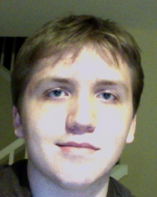Analysis of Gain Ground
A overview of successes and failures in the gameplay of Gain Ground for the SEGA Genesis. This article does not venture into higher level concepts such as aesthetics or story, just mechanics.

Gain Ground (SEGA Genesis (originally an Arcade game) – Action)
Successes:
+ Contains a large number of playable characters, all with different mechanics for their attacks.
+ The stanch differences in each character’s attack mechanics gives the player a variety of ways in which he or she can advance through a level, depending on how many characters he or she has rescued and kept alive.
+ Large number of different enemy types, including several epic bosses, which adds variety to the game, and causes the player to have to keep changing their strategy for each new type of enemy.
+ The top-down view gives players an overview of the entire play area, which allows players to develop their own strategies with different characters as how best to tackle each level.
+ Placing new characters on the map, for the player to get to and escort out gives the player extra secondary objectives in each level.
+ Ability to pick up and escort fallen characters off the battlefield and keep them alive for future maps relives some of the punishment of the game, and adds extra strategy to the gameplay.
+ Rescuing different characters and keeping them alive results in different strategic options going into each level, which can lead to player each level very differently each time, generating a good amount of replay value.
Failures:
- AI of the enemies is very limited; some enemies just stand there, others only move in set paths or just directly at the player when he or she passes a specific point.
- UI for selecting characters needs work. It is a scrolling portrait that takes a long time to go through a find the character that is desired, with only limited information on their attack.
- Player’s character gets hung up on various objects within the game, even when it appears that they shouldn’t, this can be disastrous considering it only takes one hit from an enemy to kill the character.
- Lack of save points or level selection made continuing progress impossible (granted this was a typical trait of most games in this era).
Thoughts:
~ The game is very difficult, something that is rather common with arcade games (because having players lose and play the game again resulted in more money for the arcade machine’s owner, and by extension the game developer). Unfortunately, that high level of difficultly can turn off some players.
~ The pace of the game is quite slow. While fighting enemies and strategizing this isn’t a problem, but at the end of the level, if you don’t want to kill every enemy, you have to walk each character to the exit point individually, which can be very tedious.
~ It only takes one shot from any enemy in the game to kill any character. This seems both very punishing and missing out on added level of variety that could occur between characters by giving them individual health bars. Giving some the ability to take 2-3 hits before dying would make them more valuable and add more strategic options for the player (maybe using them as scouts or tanks).
~ Maybe if not adding the ability to take multiple hits to given characters, there should be an easier mode where players can take more than 1 hit. This is assuming the game is not still primarily an arcade game (where having a high level of difficulty was typically more profitable than a lower level of difficulty).
Fixes:
o Improve enemy AI a bit (I realize this probably wasn’t a viable option when the game was made). Allow for intricate programed movements to make them less predicable. Have them move up to replace fallen soldiers, utilize cover or move away if the player moves around to get an angle on them.
O Change the slow moving portraits that allow players to scroll through and select characters with a gird with all available characters that players can quickly select them through (as they move over each character, the portrait and attack/movement details can appear under the grid).
O Eliminate the sharp invisible edges to each obstacle that cause player’s characters to trip up.
O If the player has already lead 3 characters to the exit point, allow them to continue on to the next map if they choose to, so they aren’t forced to walk each and every character across a mostly empty map to the exit.
Read more about:
BlogsAbout the Author(s)
You May Also Like







.jpeg?width=700&auto=webp&quality=80&disable=upscale)








